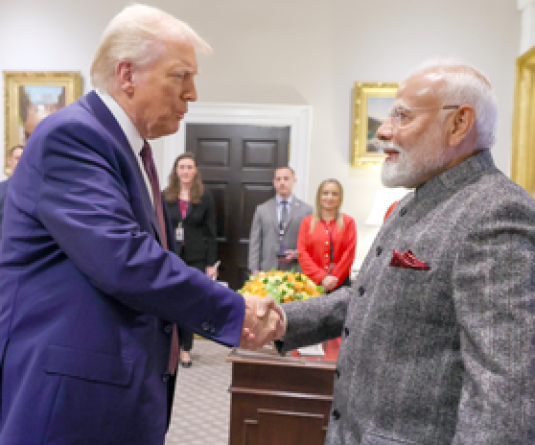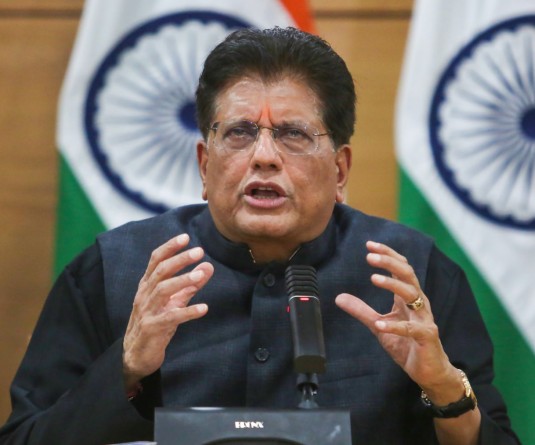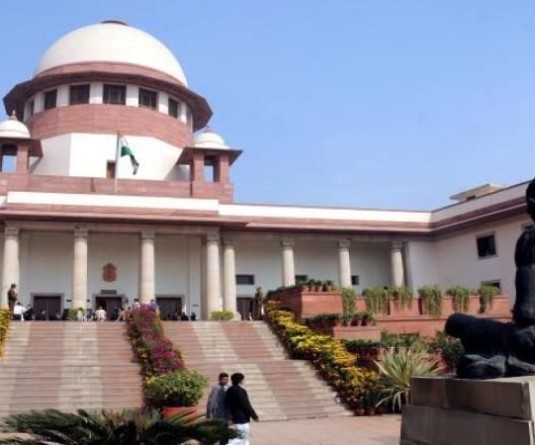
NEW DELHI, February 1 (Reuters): Feared by big business and distrusted by politicians, India’s Environment Minister Jairam Ramesh is the kind of person that normally ends up in the political cold for defying the establishment. The fact the 56-year-old, U.S.-educated former civil servant has survived the vitriol is a sign of the savvy of a politician who is one of the international faces of the government and a major behind-the-scenes player in the ruling party.
Ramesh’s latest headline-grabbing move was to give environmental approval to South Korean POSCO’s plans for a $12 billion steel mill, India’s biggest foreign investment. It was a decision that contrasted with a series of suspensions of major industrial projects. The fact that this POSCO decision was news at all is a testament to Ramesh’s influence. Only a few years ago, environmental ministers approved most projects without a hint of opposition. The perception was that no minister would dare to oppose big business and sacrifice India’s growth story on any “green” altar.
But then Ramesh appeared. Refusing to rubber stamp projects, he single-handedly changed India’s environment policy, mainly by enforcement of rules, feeding a raging national debate about a global challenge of finding the balance between growth and environmental protection. “Let us all accept the reality that there is undoubtedly a trade-off between growth and environment,” Ramesh wrote in an article for the Economic and Political Weekly magazine.
Industrial project after project suddenly hit blockades. A plan to build to mine bauxite on the site of a sacred tribal hills by UK-based miner Vedanta, was shelved. He ordered the demolition of a multi-storey luxury building in Mumbai and stopped construction of a $31 billion town on forest near Pune. Forbes India magazine voted him person of the year in 2010. The Indian Express listed him as the 12th most powerful person in India, competing among figures like Mukesh Ambani, India’s richest man, and family scion, Rahul Gandhi.
The decision over POSCO may have been guided by simple technical evaluation of the project. But it happened to be politically intelligent, easing political pressure off the minister and appeasing South Korea, an important trading partner for India. It wasn’t the first time he has shown this ability to confound his critics by flexible policies that have helped his political survival.
When Prime Minister Manmohan Singh appointed him environment minister in 2009, months ahead of the Copenhagen climate conference, Ramesh created a flutter by suggesting that India could be more flexible in its negotiating stance. He quickly retracted. “In our country, you are not accepted if you start thinking out of the box.” Ramesh said. “You have to be inside the box. You can go out of the box occasionally but be sure you return quickly.”
This statement highlighted how Ramesh is both a maverick and party insider. He is one of a handful of political leaders seen able to push an agenda of modernising India against conservative figures in the Congress who focus more on political expediency. He was a key campaign manager for Congress in the 2004 election when he helped engineer the idea that Congress could win the election by campaigning on the idea of a “common man.” Congress won, surprisingly, and he became a rising star.
Ramesh also helped Congress win the 2009 election and is known to be close to Sonia Gandhi, the head of the party whose politics is seen leaning left of Prime Minister Singh. Like many of his decisions, a touch of drama permeates everything about Ramesh, mostly seen in a flowing Indian white shirt rolled up at the sleeves. Outdoors, he is rarely seen without his dark glasses.
Once he discarded a graduation gown at a college, calling the practice of wearing it a “barbaric colonial relic”. Another time he picked up old toxic waste from an industrial accident site to drive home to the point the remains were not dangerous any more. “He is more than just a maverick,” said Paranjoy Guha, a political commentaror. “He has got the gift of the gab, his background and his position within the Congress all of this helps him to articulate the government’s stand of inclusive growth.”
Ramesh’s latest headline-grabbing move was to give environmental approval to South Korean POSCO’s plans for a $12 billion steel mill, India’s biggest foreign investment. It was a decision that contrasted with a series of suspensions of major industrial projects. The fact that this POSCO decision was news at all is a testament to Ramesh’s influence. Only a few years ago, environmental ministers approved most projects without a hint of opposition. The perception was that no minister would dare to oppose big business and sacrifice India’s growth story on any “green” altar.
But then Ramesh appeared. Refusing to rubber stamp projects, he single-handedly changed India’s environment policy, mainly by enforcement of rules, feeding a raging national debate about a global challenge of finding the balance between growth and environmental protection. “Let us all accept the reality that there is undoubtedly a trade-off between growth and environment,” Ramesh wrote in an article for the Economic and Political Weekly magazine.
Industrial project after project suddenly hit blockades. A plan to build to mine bauxite on the site of a sacred tribal hills by UK-based miner Vedanta, was shelved. He ordered the demolition of a multi-storey luxury building in Mumbai and stopped construction of a $31 billion town on forest near Pune. Forbes India magazine voted him person of the year in 2010. The Indian Express listed him as the 12th most powerful person in India, competing among figures like Mukesh Ambani, India’s richest man, and family scion, Rahul Gandhi.
The decision over POSCO may have been guided by simple technical evaluation of the project. But it happened to be politically intelligent, easing political pressure off the minister and appeasing South Korea, an important trading partner for India. It wasn’t the first time he has shown this ability to confound his critics by flexible policies that have helped his political survival.
When Prime Minister Manmohan Singh appointed him environment minister in 2009, months ahead of the Copenhagen climate conference, Ramesh created a flutter by suggesting that India could be more flexible in its negotiating stance. He quickly retracted. “In our country, you are not accepted if you start thinking out of the box.” Ramesh said. “You have to be inside the box. You can go out of the box occasionally but be sure you return quickly.”
This statement highlighted how Ramesh is both a maverick and party insider. He is one of a handful of political leaders seen able to push an agenda of modernising India against conservative figures in the Congress who focus more on political expediency. He was a key campaign manager for Congress in the 2004 election when he helped engineer the idea that Congress could win the election by campaigning on the idea of a “common man.” Congress won, surprisingly, and he became a rising star.
Ramesh also helped Congress win the 2009 election and is known to be close to Sonia Gandhi, the head of the party whose politics is seen leaning left of Prime Minister Singh. Like many of his decisions, a touch of drama permeates everything about Ramesh, mostly seen in a flowing Indian white shirt rolled up at the sleeves. Outdoors, he is rarely seen without his dark glasses.
Once he discarded a graduation gown at a college, calling the practice of wearing it a “barbaric colonial relic”. Another time he picked up old toxic waste from an industrial accident site to drive home to the point the remains were not dangerous any more. “He is more than just a maverick,” said Paranjoy Guha, a political commentaror. “He has got the gift of the gab, his background and his position within the Congress all of this helps him to articulate the government’s stand of inclusive growth.”






